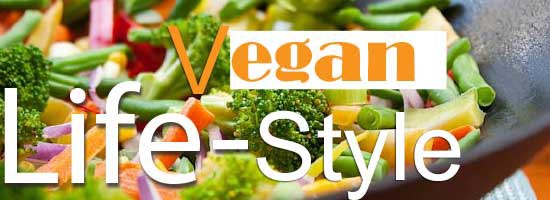the term VEGAN is surrounded by a few misconceptions about the diet and associated lifestyle. Being a vegan does not mean starving oneself, nor does it mean food choices are next to non-existent; and no, a vegan does not necessarily have a figure conforming to the western world’s view of the ideal body type; nor are all vegans animal rights activists.
A vegan simply omits the use of all animal based products and by-products from their lives. This might come as a surprise to many meat eaters, but there are other foods besides animal products that are nutritious and healthy. So the diet does not restrict persons to carrots and cabbage; after all, vegans are not rabbits.

Why the Vegan Lifestyle?
The reasons for choosing the vegan lifestyle vary from person to person. Environmental protection and the protection of animal rights influence some to go the vegan way. However, many gravitate towards the vegan option as they seek a healthier alternative.
The lifestyle is said to have many long term health benefits. And who doesn’t want to improve their health and reduce disease causing factors? The vegan diet does that. Veganism, however requires careful planning to meet daily nutritional needs. Nutrients such as iron, calcium, riboflavin and vitamin B12 are important and must be given serious attention by vegans.
Like any other, the vegan diet has its PROs and CONs.
Pros of Veganism
1. An increase in antioxidants- Antioxidants help to protect cells from free radicals such as air pollutants. Guess what, a vegan diet is rich in antioxidants! Foods such as fruits, beans and vegetables are filled with antioxidants.
2. Reduced risk of serious illnesses- As vegan diets are low in saturated fats, the benefits are insurmountable due to a reduction of cholesterol and blood pressure levels. The diet has also been linked with reducing the risk of certain cancers.
Cons of Veganism
1. Potential vitamin and mineral loss- The vegan diet requires finding the best plant based alternatives for vitamins and minerals; failing which, you will develop deficiencies of vitamins such as B12 and minerals such as iron.
To continue reading, purchase Vol.8 #10, 2017 Issue.


Share this post:
the term VEGAN is surrounded by a few misconceptions about the diet and associated lifestyle. Being a vegan does not mean starving oneself, nor does it mean food choices are next to non-existent; and no, a vegan does not necessarily have a figure conforming to the western world’s view of the ideal body type; nor are all vegans animal rights activists.
A vegan simply omits the use of all animal based products and by-products from their lives. This might come as a surprise to many meat eaters, but there are other foods besides animal products that are nutritious and healthy. So the diet does not restrict persons to carrots and cabbage; after all, vegans are not rabbits.
Why the Vegan Lifestyle?
The reasons for choosing the vegan lifestyle vary from person to person. Environmental protection and the protection of animal rights influence some to go the vegan way. However, many gravitate towards the vegan option as they seek a healthier alternative.
The lifestyle is said to have many long term health benefits. And who doesn’t want to improve their health and reduce disease causing factors? The vegan diet does that. Veganism, however requires careful planning to meet daily nutritional needs. Nutrients such as iron, calcium, riboflavin and vitamin B12 are important and must be given serious attention by vegans.
Like any other, the vegan diet has its PROs and CONs.
Pros of Veganism
1. An increase in antioxidants- Antioxidants help to protect cells from free radicals such as air pollutants. Guess what, a vegan diet is rich in antioxidants! Foods such as fruits, beans and vegetables are filled with antioxidants.
2. Reduced risk of serious illnesses- As vegan diets are low in saturated fats, the benefits are insurmountable due to a reduction of cholesterol and blood pressure levels. The diet has also been linked with reducing the risk of certain cancers.
Cons of Veganism
1. Potential vitamin and mineral loss- The vegan diet requires finding the best plant based alternatives for vitamins and minerals; failing which, you will develop deficiencies of vitamins such as B12 and minerals such as iron.
To continue reading, purchase Vol.8 #10, 2017 Issue.
Share this post: